Foods to Avoid With Kidney Disease
What you eat on a daily basis can have a large effect on your chronic kidney disease (CKD). A good renal diet can help to strengthen kidney function and delay your progress to total kidney failure. It is important that you understand what a healthy renal diet consists of – as well as what foods should be avoided.

Jump to:
- Key Takeaways
- Understanding the Role of Diet in Kidney Disease
- The Importance of Sodium, Potassium, and Phosphorus Restrictions
- The Impact of Dark-Colored Sodas on Kidney Health
- Avocados: A High-Potassium Food to Monitor
- Exploring the Sodium Content in Canned Foods
- The Risks of Whole Wheat Bread and Brown Rice
- Dangers of Processed Meats for Kidney Disease Patients
- High-Potassium Fruits and Dairy Products: What to Limit or Avoid
- Summary List of Foods to Avoid
- Frequently Asked Questions
- In CKD, Avoiding Certain Foods Avoids Complications
Key Takeaways
- High sodium, potassium, and phosphorus foods pose a risk for kidney disease.
- Dark sodas, avocados, canned foods, whole grain bread, and brown rice should be avoided.
- Processed meats, some fruits, and dairy products may also pose a risk.
- Monitoring alcohol intake and avoiding tobacco are important for kidney health.
For More Recipes and Ideas --->> Get Your Free Meals and Recipes That Are Perfect for Pre-Dialysis Diets, Pre-Dialysis with Diabetes, or Dialysis Diets.
Understanding the Role of Diet in Kidney Disease
Diet plays a critical role in kidney health and is a cornerstone in managing Chronic Kidney Disease. What we eat directly impacts the kidneys, influencing their function and overall well-being. This section delves into the profound impact of diet on kidney health, examining how nutrition affects kidney disease progression.
Diet's Impact on Kidneys
Diet exerts a profound impact on kidney health. The kidneys are responsible for filtering waste products, excess fluids, and electrolytes from the bloodstream, maintaining a delicate balance in the body. The foods we consume can directly influence this balance, affecting kidney function and overall well-being.
Excessive consumption of salt, for example, can raise blood pressure and strain the kidneys, potentially leading to kidney damage and Chronic Kidney Disease.
A high-protein diet can increase the workload on the kidneys, as they must process the byproducts of protein metabolism. This can be particularly taxing for individuals with existing kidney issues.
Moreover, inadequate fluid intake can lead to the formation of kidney stones, as concentrated urine may promote the crystallization of minerals. In contrast, excessive fluid intake can strain the kidneys, especially for those with compromised kidney function.
Maintaining a balanced diet, rich in fruits, vegetables, and whole grains, can help prevent kidney disease and support kidney health. Reducing salt and processed food intake, moderating protein consumption, and staying adequately hydrated are vital steps in preserving the well-being of these essential organs.
Nutrition in Kidney Disease
Dietary changes are crucial in Chronic Kidney Disease nutrition due to their profound impact on kidney function and overall well-being. CKD reduces the kidneys' ability to efficiently filter waste products and excess substances from the bloodstream, making dietary modifications vital for several reasons.
Firstly, dietary adjustments help manage blood pressure, a common kidney disease complication. By controlling sodium intake, dietary changes contribute to hypertension management, preserving kidney function.
Secondly, reducing protein intake lightens the metabolic waste burden on the kidneys, potentially slowing the progression of CKD and preventing further kidney damage.
Moreover, maintaining fluid balance through precise fluid control is crucial to prevent swelling and high blood pressure, as impaired kidneys may struggle to eliminate excess fluid.
Balancing minerals and electrolytes by regulating potassium, phosphorus, and calcium intake is essential to prevent imbalances affecting bone health, heart function, and overall well-being.
Lastly, ensuring a well-balanced diet with adequate vitamins and minerals supports general health and mitigates common CKD complications, such as anemia.
Dietary changes in CKD nutrition are indispensable for slowing disease progression, controlling complications, and maintaining a healthy lifestyle. They are a fundamental component of a comprehensive CKD management plan, working in tandem with medical interventions to enhance the well-being of individuals living with this condition.
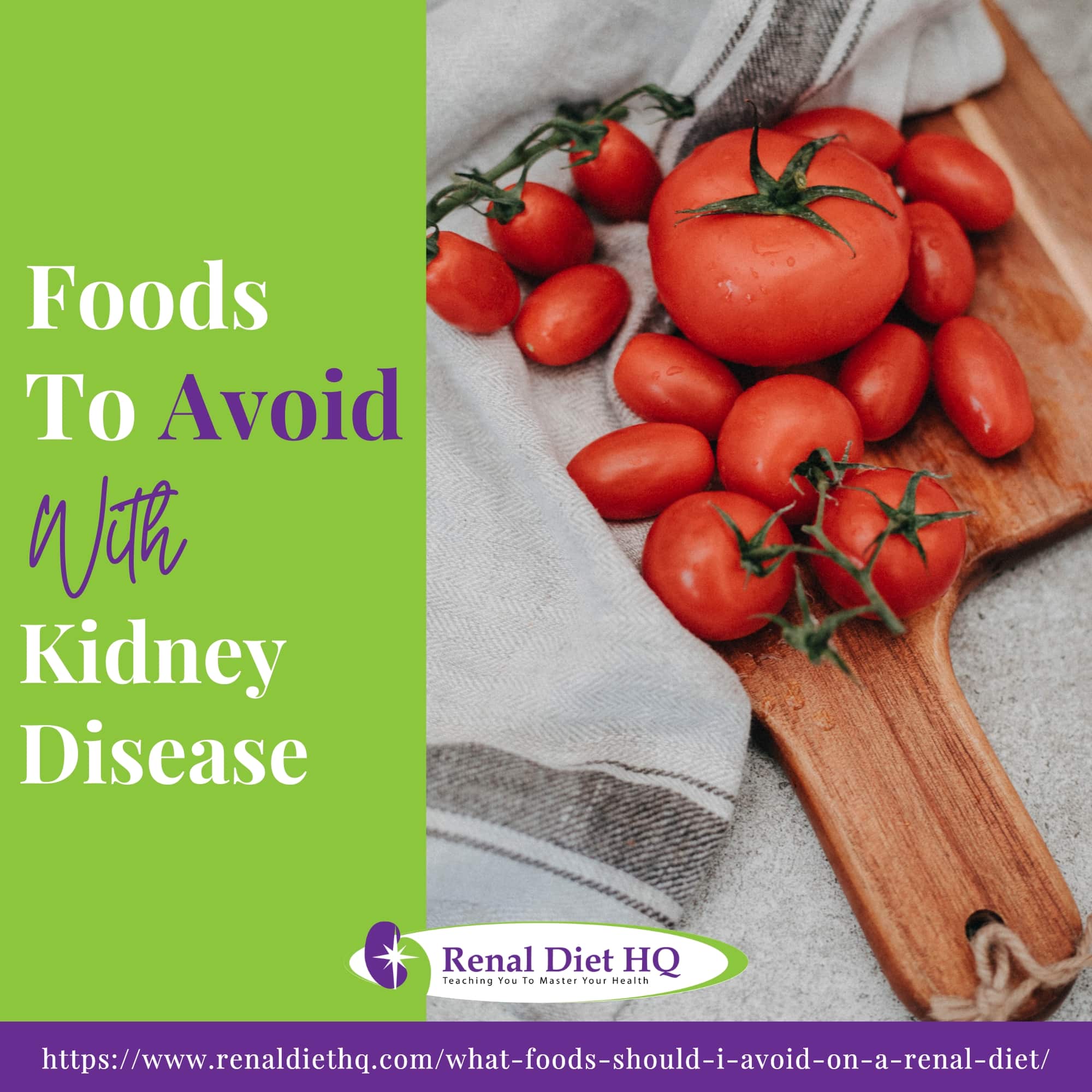
The Importance of Sodium, Potassium, and Phosphorus Restrictions
Managing sodium, potassium, and phosphorus intake is a critical aspect of nutrition in Chronic Kidney Disease. These electrolytes play essential roles in our body's function, but in CKD, imbalances can lead to complications.
In this section, we delve into the importance of sodium, potassium, and phosphorus restrictions, how they affect people with kidney disease, and the dietary strategies and challenges involved in maintaining these electrolytes at optimal levels to promote kidney health.
Sodium Restriction
Sodium restriction is vital in Chronic Kidney Disease for several reasons. In CKD, impaired kidney function hampers the body's ability to efficiently eliminate excess sodium. This can lead to sodium accumulation in the bloodstream, resulting in elevated blood pressure and increased fluid retention.
High blood pressure, or hypertension, is a common complication in CKD and can further damage the kidneys, accelerating the progression of the disease. Additionally, excessive sodium intake can cause fluid overload, leading to symptoms such as swelling, shortness of breath, and edema.
High-sodium foods to avoid in CKD include processed and canned foods, fast food, pickles, deli meats, certain condiments like soy sauce, and salty snacks. These items are often laden with sodium, and their consumption can significantly elevate sodium levels in the body.
By adhering to a low-sodium diet, individuals with kidney disease can help manage their blood pressure, reduce fluid retention, and alleviate the strain on their kidneys, ultimately promoting better kidney health and a higher quality of life.
Limiting Potassium Intake
Limiting potassium intake is essential in Chronic Kidney Disease because impaired kidneys struggle to regulate potassium levels. High potassium levels, or hyperkalemia, can disrupt the heart's rhythm and lead to serious cardiac complications. By restricting dietary potassium, CKD patients can help prevent these life-threatening issues.
High-potassium foods to avoid in CKD include bananas, oranges, tomatoes, potatoes, sweet potatoes, spinach, and avocados. These foods are rich in potassium and can quickly elevate potassium levels in the blood.
Managing potassium intake is crucial to prevent hyperkalemia, as medications and the kidneys' limited ability to excrete excess potassium can make this electrolyte imbalance challenging to control. By adhering to a low-potassium diet, CKD patients can mitigate the risk of heart arrhythmias and other potassium-related complications, ultimately supporting their overall health and well-being.
Controlling Phosphorus Levels
Phosphorus restriction is imperative in Chronic Kidney Disease due to impaired kidney function, which leads to an inability to efficiently filter and excrete excess phosphorus. Elevated phosphorus levels can disturb the delicate balance of calcium and phosphorus in the body, resulting in weakened bones, calcification of blood vessels and soft tissues, and increased cardiovascular risk.
High-phosphorus foods to avoid in CKD include dairy products, nuts, seeds, colas, and processed foods with phosphate additives. These items are laden with phosphorus and can swiftly elevate phosphorus levels in the bloodstream. Strict dietary control is crucial because the kidneys' capacity to excrete excess phosphorus is diminished in CKD.
By adhering to a low-phosphorus diet, CKD patients can help maintain bone health, minimize vascular calcification, and reduce cardiovascular complications, ultimately improving their quality of life.
The Impact of Dark-Colored Sodas on Kidney Health
You may not realize it, but dark-colored sodas can have a significant impact on your kidney health. These beverages often contain high levels of phosphorus, which can be detrimental to those with kidney disease. It's important to explore alternatives to cola drinks to help maintain your kidney health.
Phosphorus in Dark Sodas
Dark-colored sodas, such as colas, should be avoided by Chronic Kidney Disease patients due to several reasons. These beverages are rich in phosphorus, often in the form of phosphoric acid, which can significantly elevate phosphorus levels in the bloodstream. In CKD, the impaired kidneys cannot efficiently excrete excess phosphorus, and high phosphorus levels are associated with various complications, including weakened bones, calcification of blood vessels, and increased cardiovascular risk.
Dark sodas are also loaded with high-fructose corn syrup, which can contribute to obesity and metabolic syndrome, conditions that can exacerbate CKD and its complications. Additionally, the caffeine content in colas may lead to increased blood pressure, further straining the already compromised kidneys.
To promote better kidney health, CKD patients should opt for alternative, phosphorus-free and caffeine-free beverages to minimize these risks.
Alternatives to Cola Drinks
For CKD patients seeking alternatives to cola drinks, several kidney-friendly options are available. These beverages not only satisfy thirst but also contribute to better kidney health. Here are some alternatives:
- Water: Staying adequately hydrated is crucial for CKD patients. Pure, filtered water is the best choice to maintain fluid balance without any additives or excessive minerals.
- Herbal Tea: Caffeine-free herbal teas like chamomile, hibiscus, or mint are refreshing and hydrating choices.
- Fruit-Infused Water: Add slices of fruits like citrus, berries, or cucumbers to water for a refreshing, naturally flavored beverage.
- Low-Sodium Sparkling Water: Choose plain, unsweetened sparkling water as a fizzy alternative to soda.
- Diluted Fruit Juice: If you crave fruity flavors, opt for diluted, low-potassium fruit juices in moderation.
- Homemade Smoothies: Blend low-potassium fruits like apples, berries, and peaches with a nondairy milk products for a nutrient-rich option.
These alternatives provide a variety of flavors while adhering to kidney diet restrictions and supporting kidney health in CKD patients.
Avocados: A High-Potassium Food to Monitor
While avocados are known for their health benefits, they're high in potassium, a mineral you need to watch if you have kidney disease. Consuming too much can cause problems for people with kidney disease.
Avocado's Potassium Content
Avocado, while considered a healthy fruit due to its monounsaturated fats and various nutrients, poses a concern for CKD patients because of its high potassium content. A 200g portion of avocado contains approximately 975 milligrams of potassium.
In CKD, the kidneys struggle to regulate potassium levels, which can lead to a buildup of this mineral in the bloodstream. Excess potassium can cause dangerous cardiac arrhythmias and muscle weakness, potentially posing severe health risks.
Due to this high potassium content, CKD patients are often advised to limit or avoid avocados, as well as other potassium-rich foods, to prevent hyperkalemia. It's essential for individuals with compromised kidney function to carefully monitor their potassium intake and work with healthcare providers or dietitians to create a diet plan that meets their nutritional needs while maintaining safe potassium levels.
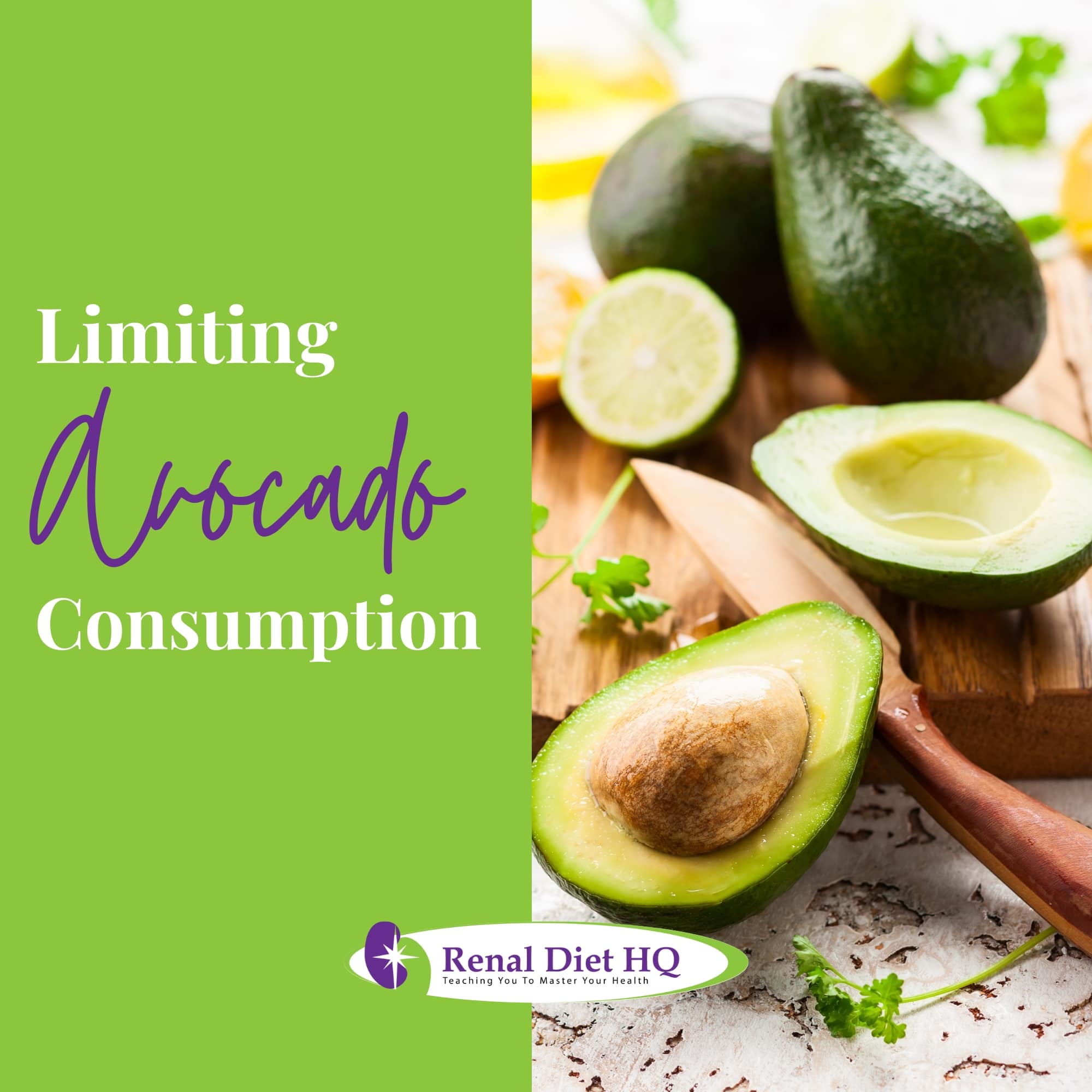
Limiting Avocado Consumption
Reducing avocado consumption can be crucial for kidney disease patients to manage potassium intake effectively. Instead of avocados, there are several kidney-friendly alternatives available.
- Cucumbers: These are low in potassium and can be used in salads or as a crunchy snack.
- Zucchini: Zucchini is another low-potassium vegetable that can be sautéed, grilled, or added to pasta dishes.
- Bell Peppers: They add color and flavor to meals and are relatively low in potassium.
- Cauliflower: It can be a suitable substitute in recipes like mashed "potatoes" or rice.
- Berries: Low-potassium fruits like strawberries, blueberries, and raspberries can satisfy the craving for fruit.
- Apples: These are a safe and low-potassium fruit option.
- Pineapple: Moderation is key, but small amounts of pineapple can be included in the diet.
Reducing avocado consumption while incorporating these alternatives allows kidney disease patients to enjoy a variety of flavors while effectively managing their potassium intake and supporting kidney health.
Exploring the Sodium Content in Canned Foods
Understanding the sodium content in canned foods is essential for individuals with chronic kidney disease. Canned foods are convenient but often packed with excessive sodium, which can lead to high blood pressure and fluid retention in CKD patients.
This section sheds light on the hidden salt in canned products and highlights the importance of scrutinizing food labels. Making informed choices and minimizing sodium intake is a vital step in managing CKD and supporting overall kidney health.
Sodium Levels in Preservatives
Sodium levels in preservatives commonly used in canned foods are a major concern for individuals with chronic kidney disease.
Many canned products contain high amounts of sodium-based preservatives to enhance flavor and extend shelf life. These additives, such as monosodium glutamate (MSG) and sodium nitrate, can significantly elevate sodium intake. Excessive sodium can raise blood pressure, cause fluid retention, and strain the kidneys in CKD patients.
Avoiding such preservatives and opting for low-sodium or sodium-free alternatives is essential for managing CKD and minimizing the risk of complications.
Reading food labels carefully and making informed choices can help individuals with CKD maintain better control over their sodium intake and support kidney health.
Reducing Sodium in Canned Foods
Chronic kidney disease patients can reduce sodium intake when consuming canned foods by following a few strategies.
Firstly, reading food labels is essential to identify products labeled as "low sodium" or "sodium-free." Secondly, opting for fresh or frozen produce over canned versions is a wise choice, as these generally contain lower sodium levels.
Rinsing canned vegetables or beans under cold water can help reduce sodium content by up to 40%. Cooking from scratch and using herbs and spices for flavor instead of salt is another effective approach.
Finally, being mindful of high-sodium additives and preservatives often found in canned foods, such as monosodium glutamate (MSG) and sodium nitrate, is crucial for making healthier choices. These steps empower CKD patients to take control of their sodium intake and support kidney health.
The Risks of Whole Wheat Bread and Brown Rice
You might think whole wheat bread and brown rice are healthy choices, but for those with kidney disease, they pose certain risks. Both are high in potassium and phosphorus, which can cause issues if your kidneys aren't functioning properly.
Let's consider the alternatives to these that are safer for your kidney health.
Potassium and Phosphorus Content
Bread, brown rice, and other whole grains are often considered healthy components of a well-rounded diet. However, for individuals with chronic kidney disease, their potassium and phosphorus content should be carefully considered.
Wheat bread contains 254 mg of potassium and 212 mg of phosphorus per 100 grams. Brown rice has 154 mg of potassium and 150 mg of phosphorus per 1 cup (195 grams) when cooked.
While potassium is essential for various bodily functions, excess potassium intake can be problematic for CKD patients. Impaired kidney function can lead to potassium buildup in the blood, causing potential heart and muscle issues. Similarly, high phosphorus intake from grains can lead to elevated blood phosphorus levels, contributing to bone and heart problems.
CKD patients should manage portion sizes and overall intake of these foods while working closely with healthcare providers or dietitians to strike a balance between essential nutrients and kidney health.
Alternatives To Whole Grain
For individuals with chronic kidney disease who need to manage their phosphorus intake, there are alternative grain products that can be incorporated into their diet.
- White Rice: Unlike brown rice, white rice has lower phosphorus content. It can serve as a good substitute for those watching their phosphorus intake.
- Couscous: Couscous is a grain product that is lower in phosphorus compared to whole grains. It's a versatile and quick-cooking option.
- Quinoa: Quinoa is relatively lower in phosphorus and can be used as a substitute for high-phosphorus grains like brown rice.
- Bulgur: This whole grain is another low-phosphorus option and can be used in various dishes, including salads and pilafs.
- Cream of Wheat: For a hot breakfast option, consider cream of wheat, which is lower in phosphorus compared to some whole grains.
By incorporating these alternatives, CKD patients can enjoy a varied and nutritious diet while effectively managing their phosphorus intake. However, it's important to monitor portion sizes and overall dietary phosphorus levels as advised by a healthcare provider or dietitian.
Dangers of Processed Meats for Kidney Disease Patients
You might not realize it, but processed meats can pose a significant risk to those with kidney disease. They're typically high in sodium, which can worsen high blood pressure and damage kidneys over time.
Moreover, maintaining a balanced protein intake is key for kidney health, and processed meats can tip that balance in the wrong direction.
Processed Meats: Health Risks
Processed meats pose significant risks for individuals with chronic kidney disease. These meats are typically high in sodium and phosphorus, which can be harmful to kidney function.
Sodium-laden processed meats, such as bacon, ham, and sausages, contribute to high blood pressure, fluid retention, and kidney damage. Additionally, the phosphorus content in processed meats can be exceptionally high, exacerbating phosphorus imbalances in CKD patients. Phosphorus is particularly detrimental as it can lead to weakened bones and cardiovascular complications.
Several processed meats should be avoided, including hot dogs, bologna, salami, and canned meats. These products often contain additives and preservatives that can further burden the kidneys.
To mitigate these risks, CKD patients should opt for fresh, unprocessed protein sources like skinless poultry, fish, and lean cuts of meat. Dietary guidance from a healthcare provider or dietitian is essential to maintain optimal kidney health while avoiding processed meats and their detrimental effects.
Sodium and Protein Balance
For individuals with chronic kidney disease, obtaining adequate protein while minimizing sodium intake is crucial. High-quality protein sources offer a solution to this dietary challenge.
Opting for fresh, unprocessed proteins like skinless poultry, fish, lean cuts of meat, and plant-based options such as beans and tofu allows CKD patients to meet their protein needs without excessive sodium. These protein sources are not only lower in sodium but also provide essential amino acids and nutrients that support overall health.
By incorporating these high-quality proteins into their diet, CKD patients can reduce the risk of elevated blood pressure and fluid retention associated with processed meats. Furthermore, a registered dietitian can help create a customized meal plan that ensures optimal protein intake while managing sodium and other dietary restrictions specific to CKD.
High-Potassium Fruits and Dairy Products: What to Limit or Avoid
You'll need to be careful with high-potassium fruits and certain dairy products when managing kidney disease.
Fruits rich in potassium can exacerbate your condition, and excessive phosphorus found in many dairy products can also be harmful. It's crucial to know which foods to limit or avoid to maintain your health.
Limiting High-Potassium Fruits
For individuals with chronic kidney disease, managing potassium intake is vital, and this involves avoiding high-potassium fruits. Fruits such as bananas, oranges, and melons are rich in potassium and can pose risks for CKD patients. Excess potassium can lead to heart irregularities and muscle weakness.
Instead, CKD patients can opt for low-potassium fruit alternatives like apples, berries, and grapes. These fruits are not only delicious but also safer for those with compromised kidney function.
Careful portion control and moderation are key when enjoying even low-potassium fruits. By making these dietary adjustments and working with a healthcare provider or registered dietitian, CKD patients can better control their potassium levels and reduce the potential complications associated with high potassium intake.
Choosing Low-Phosphorus Dairy
Chronic kidney disease patients often need to limit their phosphorus intake as their kidneys can no longer effectively filter excess phosphorus from the blood. When it comes to dairy, choosing low-phosphorus options is crucial. Regular dairy products like milk, cheese, and yogurt are relatively high in phosphorus, making them problematic for CKD patients.
Low-phosphorus dairy alternatives include unenriched almond milk, rice milk, and egg whites. These options provide a source of protein without the high phosphorus content. It's important for CKD patients to carefully read labels and choose products that are specifically labeled as low-phosphorus or phosphorus-free.
By incorporating these alternatives into their diet, CKD patients can better manage their phosphorus levels, which is essential for preserving kidney function and overall health. Consulting a healthcare provider or registered dietitian is advisable for personalized dietary recommendations.
Summary List of Foods to Avoid
Creating a table in text form, here are some examples of foods to avoid in a CKD diet, categorized by high sodium, high potassium, and high phosphorus content:
| High Sodium Foods | High Potassium Foods | High Phosphorus Foods |
| Processed Meats (e.g., bacon, ham, sausages) | Bananas | Dairy Products |
| Oranges | Colas and Dark Sodas | |
| Canned Soups | Potatoes | Whole Wheat Bread |
| Fast Food (e.g., fries) | Tomatoes and Tomato products | Brown Rice |
| Salted Snacks (e.g., chips, pretzels) | Spinach | Nuts and Seeds |
| Beans | Shellfish | |
| Soy Sauce | Avocado | Processed Foods |
| Kiwi |
Remember that individual dietary restrictions can vary based on the stage of kidney disease and other health factors, so it's important for patients to work closely with a health care provider or dietitian to develop a personalized kidney-friendly eating plan.
Frequently Asked Questions
Alcohol can have several detrimental effects on kidney disease. Excessive alcohol consumption can lead to dehydration, raising the risk of kidney stones and negatively impacting kidney function. It can also elevate blood pressure, potentially causing or worsening kidney problems.
Moreover, alcohol can interfere with medications used to manage kidney disease. For those with kidney issues, it's advisable to limit alcohol intake or abstain completely to safeguard kidney health and prevent complications.
Several foods are beneficial for kidney health. Incorporating fruits like berries, apples, and red grapes can provide antioxidants that protect kidney function. Vegetables such as red bell peppers and cabbage are low in potassium, making them kidney-friendly choices.
Foods rich in omega-3 fatty acids, like salmon and flaxseeds, help reduce inflammation and promote kidney health. Maintaining a balanced, low-sodium, and low-phosphorus diet is essential for those with kidney issues.
Seafood can have both positive and negative effects on kidney disease. Fatty fish like salmon, mackerel, and sardines are high in omega-3 fatty acids, which can reduce inflammation and benefit kidney health. However, some seafood, especially shellfish, is rich in purines, which can exacerbate gout and kidney stone formation.
For kidney patients, it's essential to strike a balance by including omega-3-rich fish while monitoring portions of high-purine seafood to minimize the potential risks and maximize the benefits. Consulting a healthcare provider or dietitian for personalized guidance is advisable.
Yes, there are risks associated with excessive protein consumption for kidney disease patients. Consuming too much protein can increase the workload on the kidneys, potentially worsening kidney function. It may also lead to higher levels of waste products that the kidneys struggle to eliminate.
However, not all protein is the same, and high-quality protein sources with essential amino acids, like lean poultry or plant-based options, can be part of a kidney-friendly diet. It's crucial for patients to consult a healthcare professional or dietitian to determine the right protein intake based on their specific condition.
Moderate coffee or caffeine consumption typically doesn't harm kidney health and might even have some benefits. Caffeine is a diuretic but doesn't cause dehydration when consumed in moderation. It can increase blood pressure temporarily, so those with hypertension should be cautious.
Some studies suggest that caffeine might reduce the risk of kidney stones. However, excessive caffeine intake can lead to restlessness, increased heart rate, and interfere with sleep, which indirectly affects overall health. As with many things, moderation is key, and individuals with kidney issues should consult their health care provider for personalized advice.
In CKD, Avoiding Certain Foods Avoids Complications
In managing Chronic Kidney Disease, dietary choices play a pivotal role. High-sodium, high-potassium, and high-phosphorus foods are among the culprits that can exacerbate kidney issues. Dark sodas, avocados, canned foods, whole wheat bread, brown rice, and processed meats are to be avoided due to their potential complications.
Conversely, a balanced diet rich in fruits, vegetables, and whole grains can prevent kidney disease and support kidney health. Careful dietary monitoring, under healthcare provider or dietitian guidance, helps control CKD progression and complications.
The takeaway is clear: In CKD, diet is a critical factor, and informed choices can profoundly influence kidney health and overall well-being.

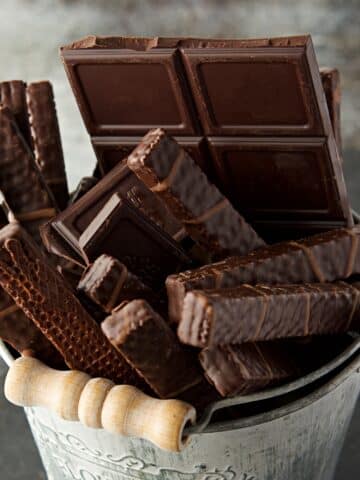
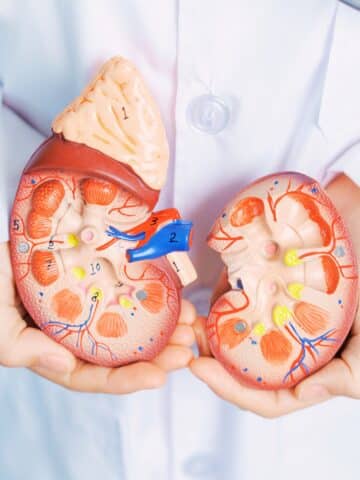
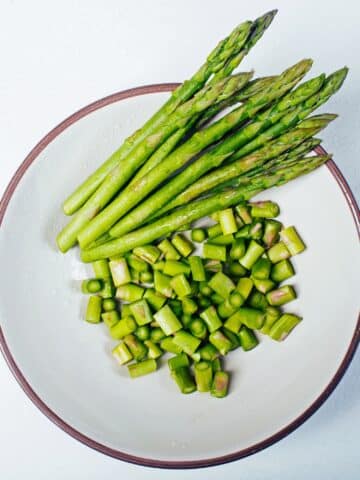
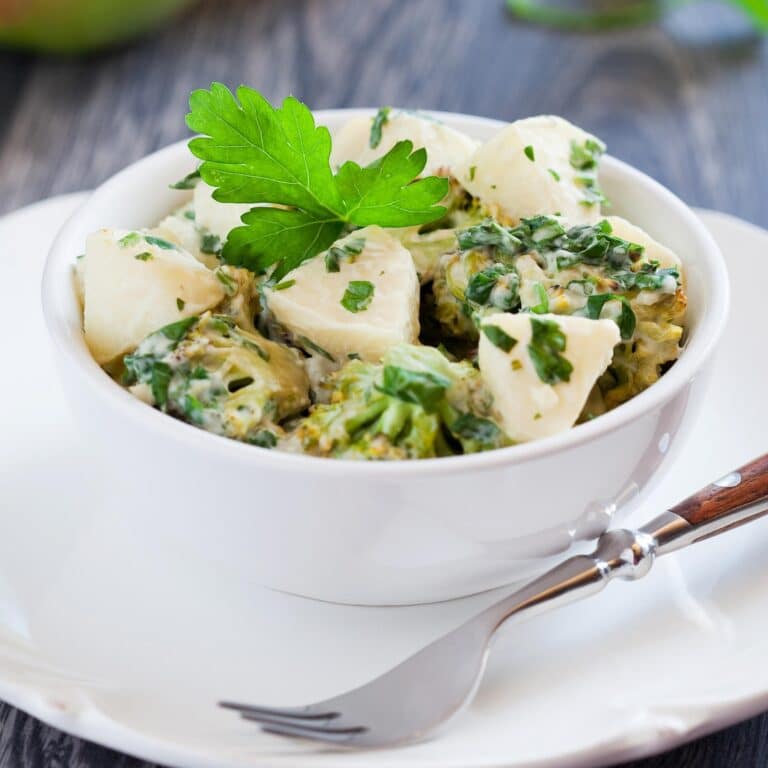
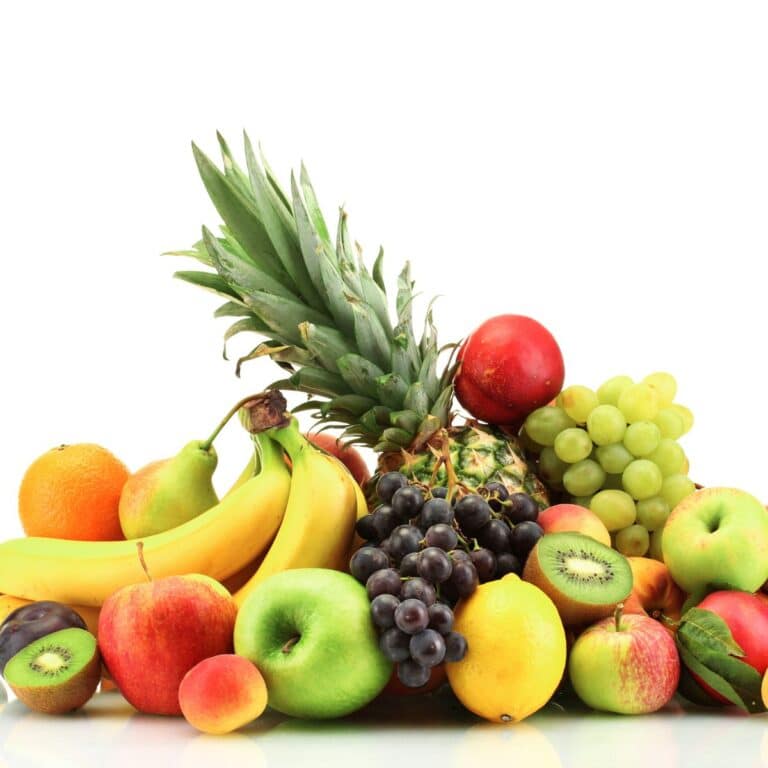
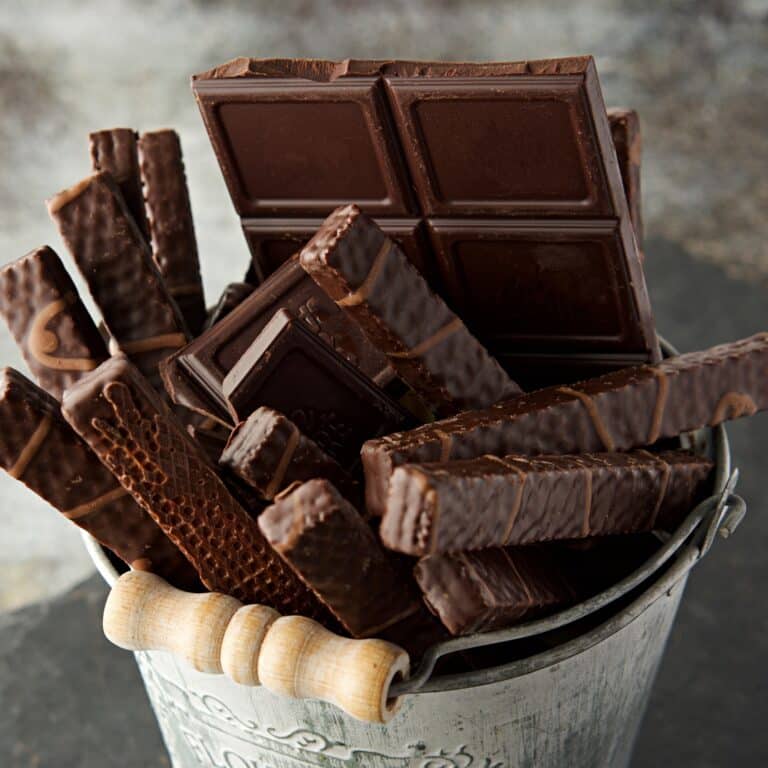
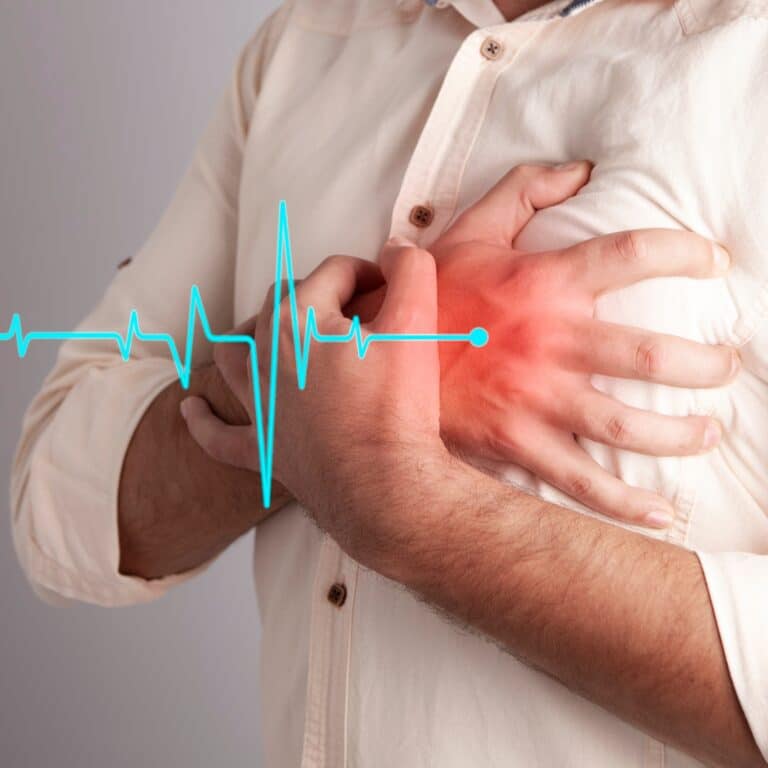
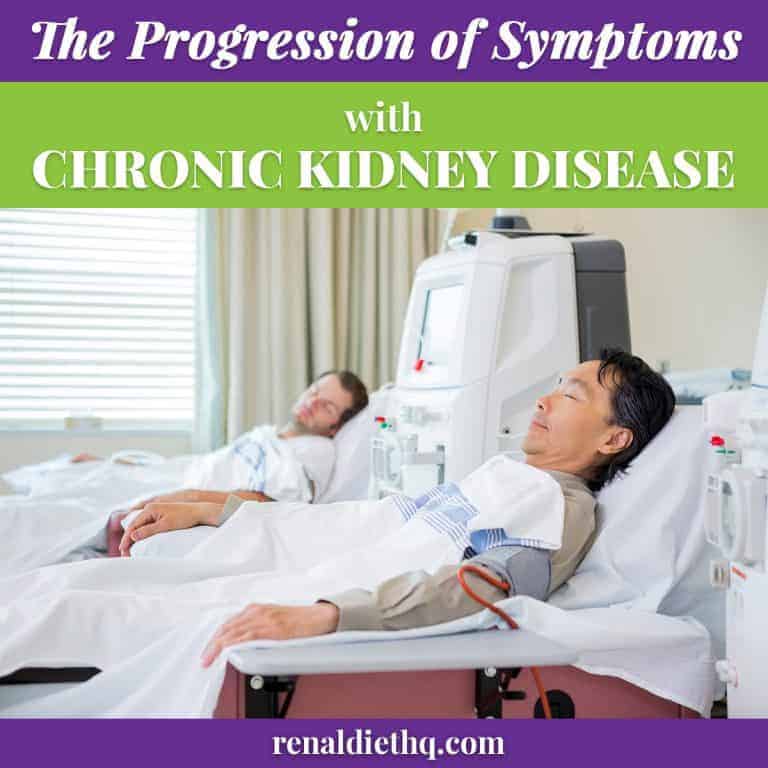
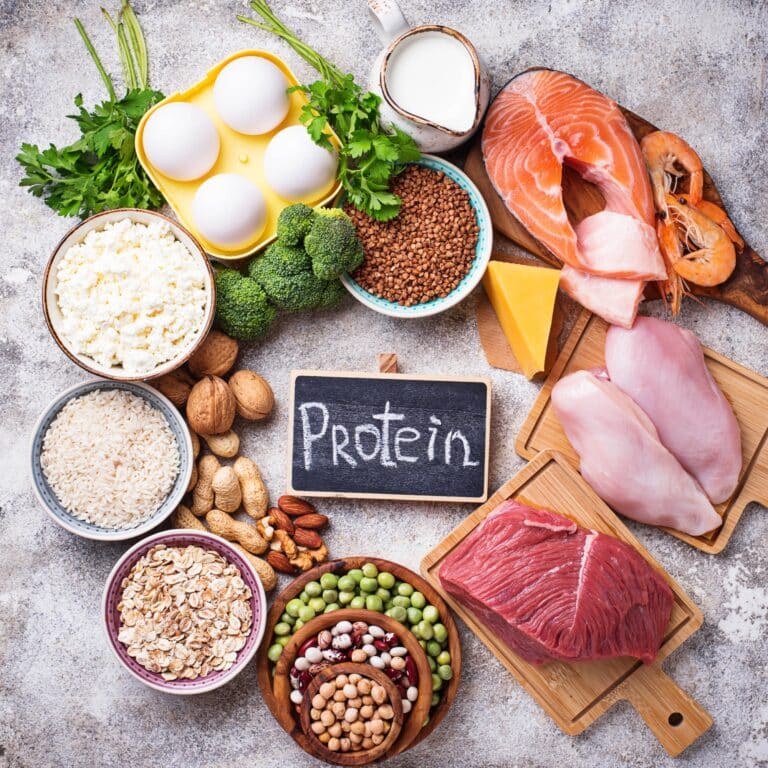


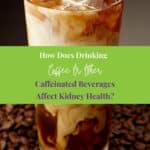
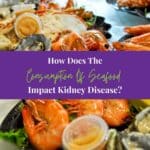

I had a kidney transplant 37 years ago. It is failing now. The renal diet is a difficult one. I am holding my own, still have an appetite although nothing seems to satisfy. Thank you for your time & years of expertise to help si many of us in this situation.
I read your articles every day, and they have been very helpful to me. My numbers have improved at the last visit to my Dr. Thank you for helping me,as I am at stage 3 and holding.